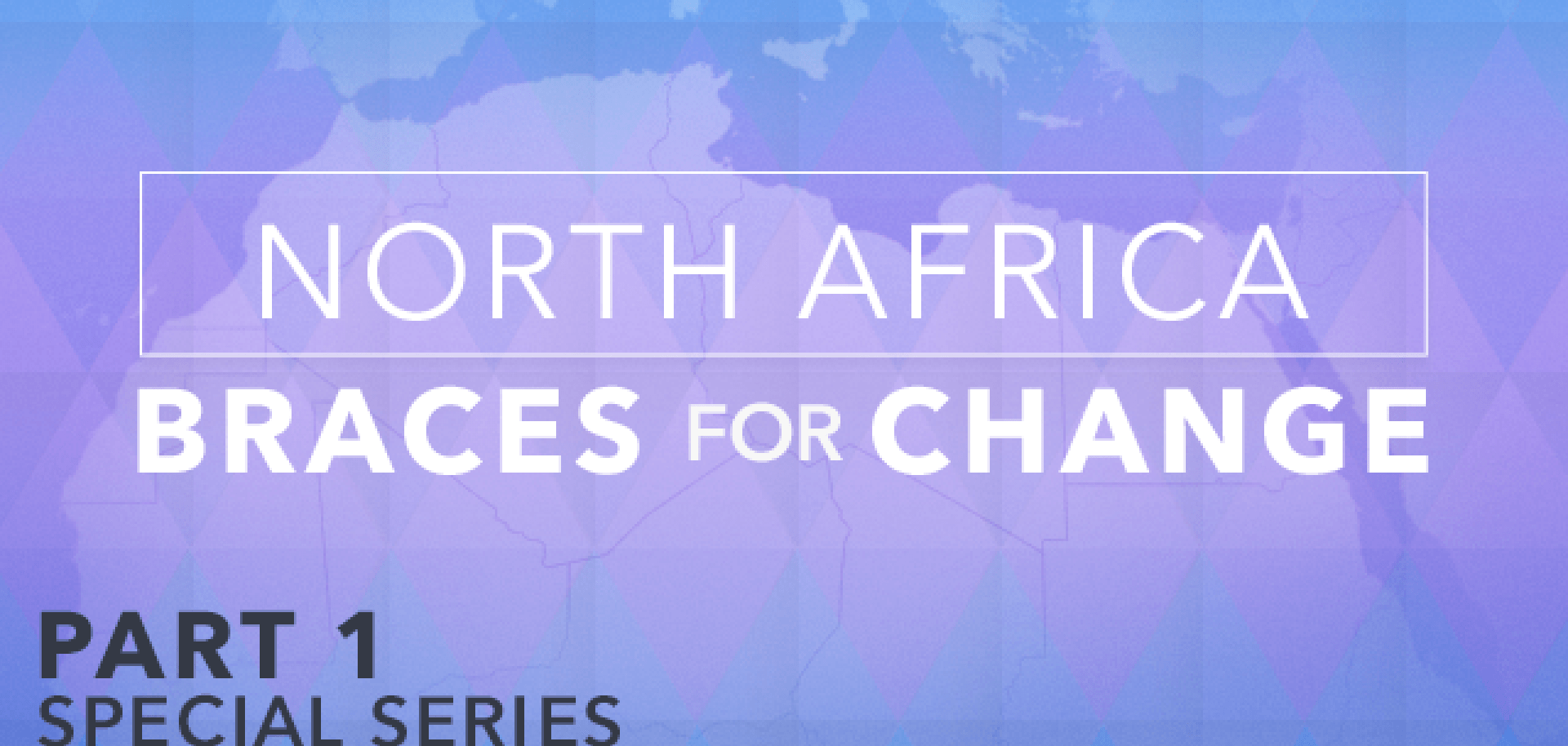ASSESSMENTS
North Africa: A Cultural Crossroads Faces the Future
Mar 17, 2014 | 09:31 GMT

Summary
Editor's Note: The following is the first installment of a four-part series examining the geographic, political and security challenges facing North Africa. Part 2 looks at the uncertainties surrounding Algeria's upcoming elections. Part 3 examines instability in Libya and its effects in neighboring countries. Part 4 discusses the ongoing changes in Morocco and Tunisia.
The countries that make up North Africa — Morocco, Algeria, Tunisia and Libya — are defined as much by the broad desert expanses of the Sahara and the Atlas Mountains as they are by the waters of the Mediterranean. Wedged between the coastline of the southern Mediterranean and an ocean of sand, the populations of North Africa inhabit a virtual island. Despite their proximity to — and long history of interaction with — Southern Europe, sub-Saharan Africa and the broader Middle East, the countries of North Africa have been able to forge and maintain an identity distinct from their neighbors. This is not to say that these states are relatively insulated. Rather than preventing transportation, the Mediterranean and Sahara have been crisscrossed by trade routes for millennia, making North Africa a central node of a vibrant pre-modern trade route spanning three continents. Traders used these routes to transport gold and goods from West Africa to Southern Europe via the Maghreb, and sea-borne trade linked the ports of Carthage in what is now Tunisia with the Levant and Ancient Greece and Rome.
Because of this lack of isolation, current trends within North Africa — challenges to political stability, regional militancy and changes in energy production — can affect markets and strategic decision making both regionally and internationally. Though North African states have been — and will remain — largely constrained in their ability to influence the broader Middle East, their proximity to Europe and former European colonial holdings in Africa, and the continued economic and security relationships between these regions, makes events in North Africa resonate in regional and Western capitals.
Subscribe Now
SubscribeAlready have an account?
